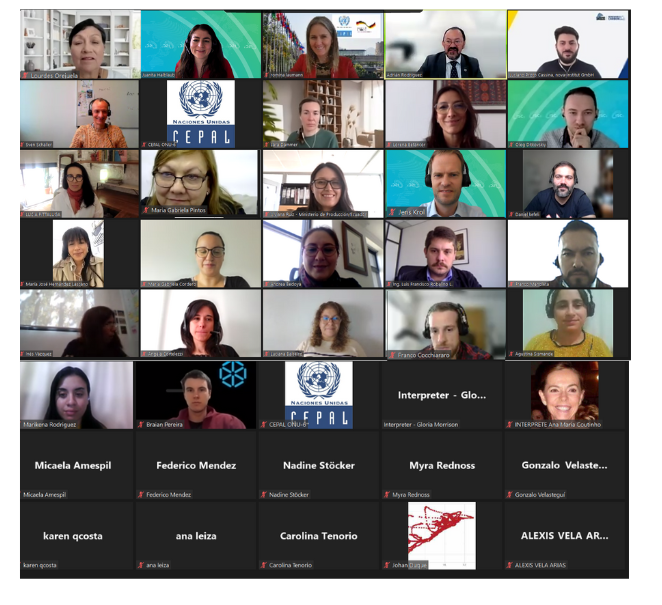The workshop aimed at co-creating strategies for better policy design and implementation of a sustainable Bioeconomy in Ecuador and Uruguay. Thematically, the workshop focused on a more strategic sustainable use of biogenic resources in the mentioned countries, with special attention to the utilisation of biowaste in bioenergy and bioproducts.
Over three immersive hours, the workshop focused on various facets of Bioeconomy, exploring its opportunities and challenges. Two impulse presentations were held, one presentation focused on “Bioeconomy and Energy from Waste” and was delivered by Dr. Sven Schaller, Executive Support Team DBFZ. The second presentation focused on the “nexus of Sustainable Chemistry and Bioeconomy” and was presented by Jens Krol, Project Manager Capacity Building ISC3. Furthermore, two case studies were presented: the first focused on the “Production and utilisation of bio-packing in the agri-food sector in Uruguay”, presented by Dr. Lucía Pittaluga, ECLAC-BMZ/GIZ bioeconomy consultant. The second one was presented by Dr. Lourdes Orejuela, ECLAC-BMZ/GIZ bioeconomy consultant and focused on “Biorefineries based on Agriculture and Agro-industrial Waste in Ecuador”.
A highlight of the session was the SWOT analysis, where together with the participants the strengths, weaknesses, opportunities, and threats pertaining to bio-based initiatives in the respective countries were examined.
This workshop not only fostered a deeper understanding but also ignited inspiration for collaborative action towards harnessing the power of bioeconomy for a greener future.
We are grateful for the opportunity to connect with bright minds from Uruguay and Ecuador, representing diverse sectors including the Ministry of Environment, Water and Ecological Transition (MAATE) and the Ministry of Production, External Trade, Investments and Fisheries (MPCEIP) of Ecuador, the Ministry of Industry, Energy and Mines (MIEM), and the Ministry of Livestock, Agriculture and Fisheries (MGAP) of Uruguay, along with other relevant private, academic, and non-governmental organisations. We are looking forward to leveraging these insights to drive positive change in our communities. Let's continue to innovate, collaborate, and champion sustainability together!


